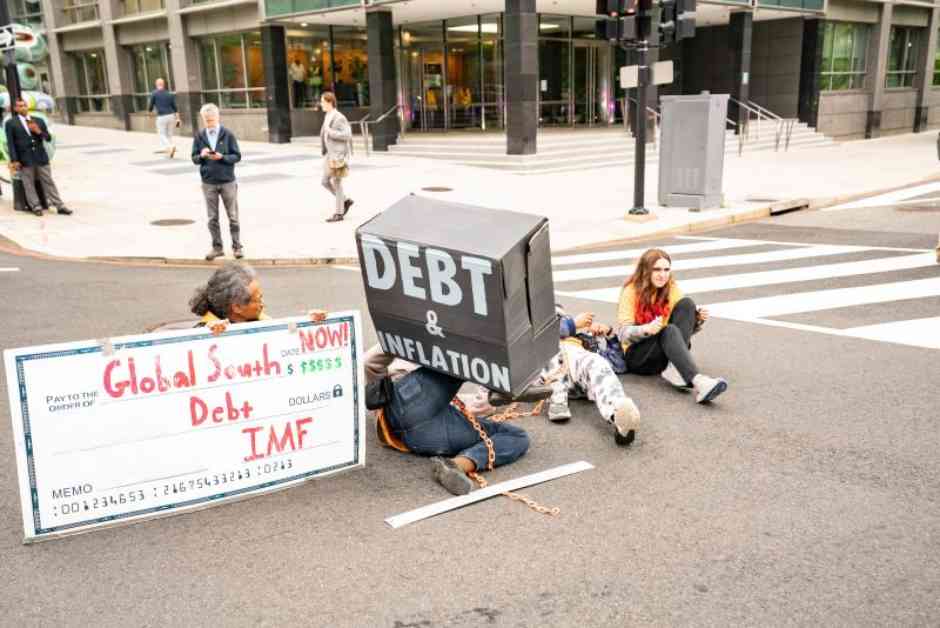Laurie van der Burg, Mariana Paoli, and Rebecca Thissen, all with fancy titles like global advocacy lead and campaign manager, are making some noise about a crisis that’s not getting a lot of attention. While climate disasters are getting worse in the Global South, there’s another crisis happening under the radar. Governments are drowning in debt, and the money they need for clean energy and resilience is going to creditors in the Global North instead of solar panels.
The US is apparently on a mission to make this debt and climate situation even worse. They’re pressuring institutions like the World Bank to ditch climate action and use public funds to line the pockets of American and multinational corporations, especially in the fossil fuel industry. How nice of them, right?
At some meetings in New York this week to get ready for the United Nations’ Financing for Development conference in Seville in June, countries have a choice. They can either say no to this nonsense, including the US trying to mess things up, or they can start building a new financing framework in Seville that actually helps the world’s poorest countries survive.
Many Global South countries are spending way more on debt repayments than on climate action – like five times more. Some can’t even recover from disasters because they’re too busy paying interest on loans from forever ago. Others are stuck relying on expensive fossil fuel imports just to keep going.
This whole situation isn’t just bad luck – it’s by design. The rich countries that caused the climate crisis in the first place built the global financial system to benefit themselves. Now they’re demanding repayment from those who had the least to do with it. Oh, and the “climate finance” they offer? It’s mostly just more debt.
Take Ghana, for example. They got over $2 billion from the World Bank for oil and gas projects, but delays have left them needing pricey fossil fuel imports. And those “take or pay” contracts that make sure foreign investors get their money? They’re costing Ghana over $1 billion every year. Meanwhile, lots of people in Ghana still don’t have affordable energy. Nice job, World Bank.
It’s not just Ghana, though. Many countries are stuck in a cycle where they have to keep depending on fossil fuel extraction to pay off their debts. And who’s behind these conditions? The International Monetary Fund (IMF), among others. According to a study from the ODI think-tank, debt levels shot up in major oil and gas exporting countries in the Global South in the last decade.
Groups from the Global South, like the African Group and the Alliance of Small Island States (AOSIS), have some ideas to fix this mess. They want a UN Tax Convention to stop money from flowing out through tax havens and to get more climate finance that doesn’t come with strings attached.
With 2025 being a Jubilee year for debt forgiveness, calls for debt cancellation and a UN Sovereign Debt Convention are getting louder. The current draft for FfD4 talks about setting up this Convention, which could actually help fix things instead of the weak attempts by the G20 and IMF.
But instead of getting on board with these changes, wealthy countries like the UK, France, and Germany are cutting aid and pushing their responsibilities onto the private sector. They’re not exactly making things better. Even the World Bank’s chief economist knows that their “Billions to Trillions” plan isn’t working.
The EU and UK should really be teaming up with Global South countries and supporting their ideas for changing the system. There’s plenty of money out there – like the $1 trillion owned by just 10 rich people or the $1 trillion made in profits by fossil fuel companies last year. And let’s not forget about the hundreds of billions given in fossil fuel subsidies every year.
If we tax the ultra-rich, make polluters pay, stop the fossil fuel handouts, and cancel those exploitative debts, we could have over $5 trillion a year to make the world more equal and sustainable.
The Seville conference coming up is a big deal. It’s a chance to show that countries can actually work together in times of crisis. Climate finance, debt relief, tax justice, and getting rid of fossil fuels are all connected and need a united response. It’s time for governments to support the solutions proposed by the Global South and start moving towards a more just, resilient, and sustainable global economy. And that UN Sovereign Debt Convention? It’s about time we rebalanced a system that’s been against the poorest for way too long.
Wealthy countries need to step up and use public tools for the common good instead of trying more financial tricks. Otherwise, it’s not really climate action – it’s just exploitation with a green label.














